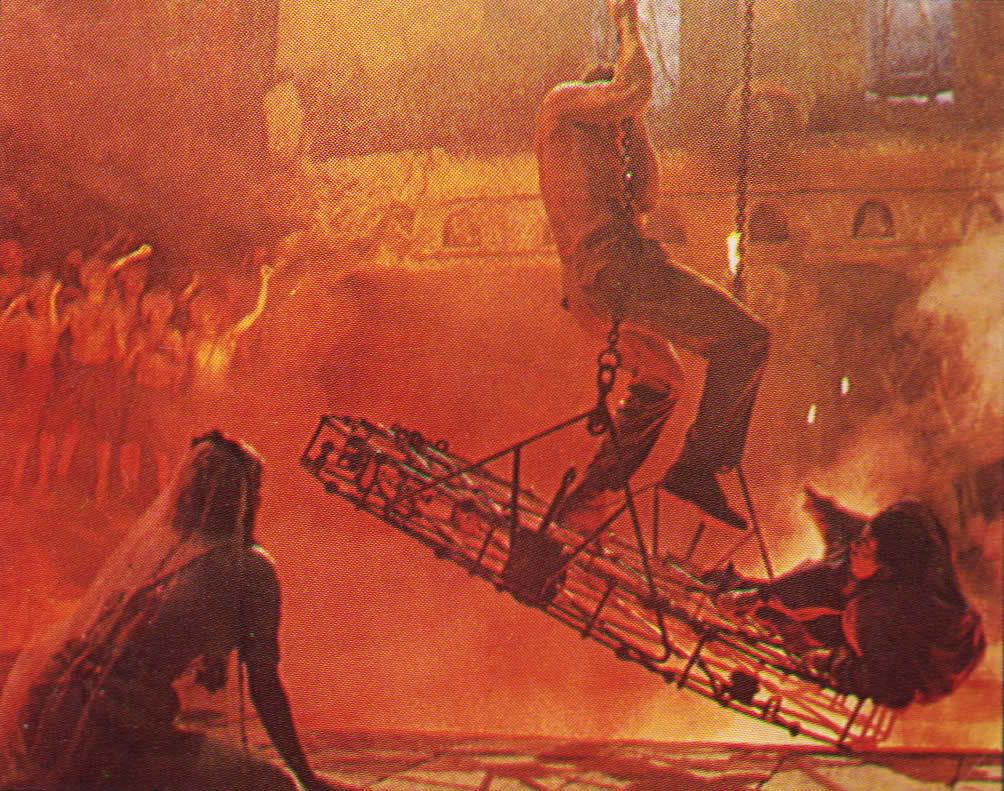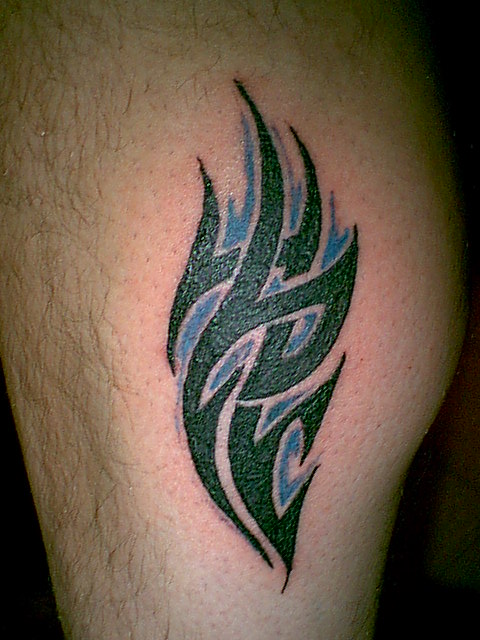I could use this post to update you on the "progress" of my ISP (hint: I still haven't solved human trafficking). I could use it to tell you all about the wonders of Sarajevo, numerous and unceasing as they are. I could even use it to explain the vaguely ominous, question-raising title of this post.
Instead, I'm going to talk about some books. I realized that I ended up doing a pleasantly surprising amount of reading during my time in the Balkans, thanks in no small part to pre-class downtime and the wonder that is the Kindle. So here, for your enjoyment and entertainment, is the unadulterated list of Sam's Book Club. Join now, and receive a free sense of steadily spiraling lunacy!
 |
| Pictured: Another hint. |
- The Tiger: A True Story of Vengeance and Survival by John Vaillant: Okay, so this one was actually started and finished the month leading up to my departure, but considering all the anticipation and preparatory work for the trip, I certainly feel like it deserves inclusion. The Tiger follows two intertwining stories occurring in 1997 in the Primorye region of Russia, a beautiful, unforgiving expanse of coniferous jungle vast enough to be considered by some environmentalists to be one of the "lungs of the earth" (the second being the Amazon, but I digress). The first story is that of Yuri Trush, then-head of Inspection Tiger, a unit dedicated to maintaining the delicate stasis between the human and tiger population; the second is that of a particular tiger, wronged by poachers and out for chillingly-targeted revenge. It's a very well-written reminder of just how conditional our seat at the top of the food chain is.
- Medicine Men: Extreme Appalachian Doctoring by Carolyn Jourdan: I started this in the Philly terminal fresh after hearing about the five-hour delay on the connector to Boston. Carolyn Jourdan was a Wall Street...analyst? Broker? Something that involved upper six-figure salaries, caffeine IVs, and flexible moral compasses. Then her country-doctor father suffered a stroke, necessitating her return to her eastern Kentucky home to help care for him and work as a receptionist/assistant in his clinic. In doing so realized that the good she did there far outweighed any benefit of her previous lifestyle, and she made the change permanent. The book is a short but sweet collection of anecdotes pertaining to the general hilarity that ensues when one man with a pick-up truck and a medical school degree has to look after hundreds of rugged miles with nobody but his family to help him. Another eye-opener, but by no means a downer.
- Becoming the Iceman by Wim Hof and Justin Rosales: This was one I'd been meaning to pick up for a very long time. Wim Hof is a Dutch athlete who has trained himself (and trains others) to resist extreme cold and heat, and has 19 world records to prove it (one of which consists of climbing Mount Everest in socks and bicycle shorts). Justin Rosales of State College, PA, to put it simply, was not. Together, the two write a book of their original, separate goals, their eventual meeting, and the former's steady but successful instruction of the latter, eventually training him to the point of breaking a world record of Justin's own (the best 3k time in sub-freezing temperature, wearing only shorts, if I remember correctly). I'll state it plainly: neither are writers. Wim's sections are direct to a fault, occasionally skipping details that would be much better said, and Justin's are pretty scantily edited and can be awkward to read. That said, it serves to affirm my faith that I'm not being bullshitted--these are two athletes giving their honest accounts of their training, not two salesmen trying to dazzle you into buying a book. I've tried a few of these techniques, namely the establishment of resistance with cold showers, and I've met with success. Even beyond that, the philosophy of pursuing success espoused by both guys is reason enough to read it.
- H.P. Lovecraft: The Complete Collection By Englebert Humperdink (no, really, it's by H.P. Lovecraft): Did I read anywhere close to all of these? No. This is literally everything ever published by Lovecraft, in anthologies, in novel form, in serialized pulp magazines--the man's goddamn shopping list might very well be in here. And how much did I pay for it on the Kindle? $2.99. Shut up and take my money. I jumped right to Call of Cthulhu because it's Call of Cthulhu, then dug into At the Mountains of Madness, reading it over several cold nights in front of the wood stove at the host family's. The man wrote suspense like it's nobody's business, and he presented more detailed scenery with three paragraphs than some movies do with their entire FX budget. And it's $2.99! Go!
- Gods of Mischief by George Rowe: So you're shooting pool at a bar with a friend, when three or four tobacco-chewing, hulked-out, leathered-up, pissed-off bikers from the Vagos Motorcycle Club step through the door. Their leader eyes up the table and decides he wants it for himself. You, valuing the attachment of your balls to the rest of you, step back, but your friend won't stand for that kind of bullshit. Fifteen minutes later, he's beaten half to death on the floor. Three days after that, he's found in the desert, beaten the other half. What do you do? If you're George Rowe, forty-year old hardass jailbird-gone-straight, you come to the ATF offering to go undercover in the Vagos, rising through the ranks and gathering enough information to take the Vagos all the way down. The conversational tone of Rowe's writing doesn't preclude its quality and depth, and the man tells one hell of a story that's well worth the read.
- The Religion of the Samurai: A Study of Zen Philosophy and Discipline in China and Japan by Kaiten Nukariya: A brief history and overview of Zen Buddhism, covering meditative practices, application to historical perspectives, and comparison with other sects of Buddhism. Written in a laconic fashion that simply does not cater to those who don't want to learn, Nukariya's piece is a fantastic read for inquisitive minds.
- Barefoot Running: Step-By-Step by Roy Wallack and Ken-Bob Saxton: Despite the veritably endless ridicule I've gotten from just about every non-runner I've talked to on the subject, both the unearthed research and personal progress I've had have gotten me enthusiastic about barefoot/minimalist running. I picked up the guide by the guru himself, Ken-Bob Saxton, and had mixed feelings. On the one hand, he supplies plenty of information with steady, reliable support from the scientific community at large, and he readily acknowledges the points of detractors with due and fair diligence. On the other hand, I'm a bit off-put by his insistence that there is no healthy/safe middle-ground between shod running and barefoot running (as the proud owner of a pair of Vibrams, this alarmed me at first). With that in mind I posit that the book itself, if taken with a grain of salt, is a fantastic resource, and if taken just as a memoir, is a pleasant and playful read detailing the growth and development of the most unique athletes I've ever heard of.
- Sympathy For the Devil edited by Tim Pratt: I'll put it bluntly: this is a collection of short stories about Satan. Ignoring the obvious implications for my mortal soul, it's actually a spectacular read, with some world-class names from the worlds of horror, fantasy, and sci-fi writing (Neil Gaiman in particular contributes a brilliant little piece). Some of them are downright terrifying, others hilarious, others completely baffling, but just about all of them are loads of fun. I couldn't approach selecting a favorite, but up there are Sold to Satan by Mark Twain, Metaphysicsby Elizabeth M. Glover,
WithBy Good Intentions by Carrie Richerson, We Can Get Them For You Wholesale by Neil Gaiman, and about half of the other stories in the book. - Confessions of an Idiot by Chris McDougall: This...was bad. No two ways around it. I searched for a memoir on BASE jumping and saw the name Chris McDougall, who I mistook for Chris MacDougall, author of Born to Run. Let this be a lesson to always read the free sample. I bought it instead and made it ten percent of the way through the book before realizing that "Confessions of an Idiot" was not an ironic title. The entirety of the book seems to be stories ending with (often literally) the words "yeah, we were dickheads back then" regardless of how long ago the story actually took place. I wrote like he does in this book when I was in eighth grade. The good news is that every once in a while, he talked about BASE jumping. The bad news is that apparently every BASE escapade is carried out in a stupid, irresponsible, reckless way. If you're doing it recklessly by the standards of freaking BASE jumping, you know you're doing it wrong.
- On the Decay of the Art of Lying by Mark Twain: Although this is not a book, and in fact was an essay delivered to the Historical Club of Hartford for a thirty-dollar prize, I'm putting it in here as possibly the funniest thing I've read to date on my Kindle. I won't try to explain it, just go out and find it online. Totally worth ten minutes of your time.
- Forty-Seven Ronin: A Novella of Japan's Most Legendary Tale of Revenge by Dimetrios C. Manolatos: Although it's not winning any literary prizes, or even any praise, anytime soon, Manolatos does succeed in retelling the phenomenally under-told (and allegedly true) story of the 47 Ronin, former samurai who infiltrate Edo (Tokyo) to avenge their slain master and regain their honor. Although it features some of the most painful dialogue and unnecessary carnage I've read since middle school, he relates a great story relatively intact and gives a fun time in 150 pages, so I've got no problem with it.
- The Undiscovered Self by Carl Jung: One of Jung's more influential works, The Undiscovered Self functions as a crash-course in the idea of the shadow-self, the summation of the parts of yourself that you'd rather not deal with, so down you push them until you think they've gone away. Jung relays the concept much better than I just did, and then runs with it, bringing up ideas of projection and the harm that suppressing and denying the shadow can bring about. Finally, he postulates that the rejection of the shadow has put us where we are today (as this was written in the late forties/early fifties, Jung, like the rest of the world, had just witnessed the largest immediate loss of human life in history with the dropping of the atomic bombs at Hiroshima and Nagasaki and was understandably alarmed at the state of humanity). A groundbreaking piece even today, I think everybody could do with a quiet room and half a day to work through it.
- Nocturnal by Scott Sigler: Modern horror at its finest. Nocturnal tells the story of Brian Clauser and "Pookie" Chang, two San Francisco cops who stumble onto a century-old conspiracy that goes all the way to the top after being forced off of an investigation involving a growing number of ritualistic slaughters. As they probe deeper and deeper into it, one of them begins to realize that he's far more involved than he'd ever thought, and not necessarily on the right side. It's gripping, it's suspenseful, it's genuinely chilling at some points. I first heard about it when Sigler went on Joe Rogan's podcast. The man knows what he's doing at a keyboard, definitely pick this one up if you've got the chance.
And that takes us to here and now. Next on the docket, ISP-related readings aside, is Infected by Scott Sigler (yes, I'm hooked), and probably Symbols and the Interpretation of Dreams by Carl Jung. Then maybe I'll fuck off and watch a TV show or something, who knows? Stranger things have happened.










